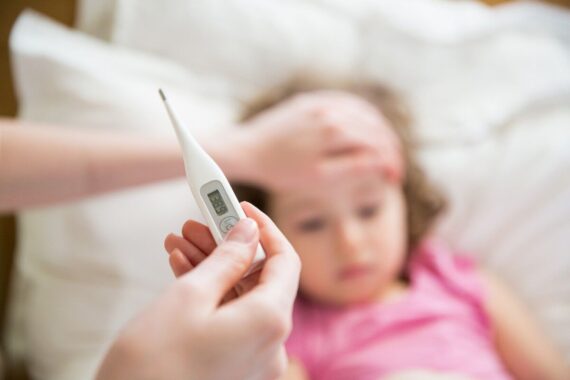Pharmacy-based flu vaccine service for children to be trialled this winter

Community pharmacies will be able to offer flu vaccination for young children under a one-season trial this winter.
Pharmacies that sign up to the advanced service will be able to offer flu vaccine to children aged 2-3 years from 1 October.
The move is to try and boost uptake in this age group who would ‘ordinarily’ be offered vaccination by their GP, Community Pharmacy England said.
Last winter uptake for two-to-three-year-olds was 42.6% compared with 44.4% in 2023/24, figures from the UK Health Security Agency show.
Uptake of free flu vaccination also fell last year for both older eligible people and younger high-risk groups, final data shows.
The UK Health Security Agency said 74.6% of those aged over 65 years had the vaccine by the end of January compared with 77.8% last year and 79.9% in 2022/23.
For those under 65 years in a clinical risk group flu vaccine uptake was 39.7%, down from 41.4% the previous year and 49.1% two years ago.
This winter saw a later start to the influenza immunisation programme after the Joint Committee on Vaccination and Immunisation recommended the vaccine should be given closer to the start of the flu season.
In a letter to GPs last month, NHS England said it would stick with the same approach with the over-65s and clinical risk groups, who will need to wait until October for their jab.
But GPs will be able to offer vaccination for pregnant women and two-to-three-year-olds from September.
Older children will be offered vaccination at school as usual.
Pharmacy owners will be paid £9.58 for each vaccine administered which for most eligible children will be with live attenuated influenza vaccine nasal spray suspension.
A report from the Royal College of Paediatrics and Child Health (RCPCH) recently concluded that ‘stubborn barriers’ to accessing childhood vaccinations, including around booking a GP appointment, are contributing to the ‘worrying decline’ in uptake.
Alastair Buxton, director of NHS Services at Community Pharmacy England, said: ‘The commissioning of this new vaccination service from community pharmacies is fully aligned with NHS England’s vaccination strategy, the Government’s recently published 10 Year Plan for Health and the community pharmacy sector’s strong desire to provide more NHS vaccination programmes.’
‘Community Pharmacy England was pleased to be able to agree this new Advanced service as a trial for one season, and we are confident that pharmacy teams will be able to increase vaccination rates by providing a convenient and accessible service to parents and their eligible children.’
Professor Azeem Majeed, head of the department of Primary Care and Public Health at Imperial College London, said the pharmacy trial could help boost vaccination rates by ‘improving access for those parents who find it difficult to book a GP appointment’.
‘From a GP perspective, however, this does introduce some challenges,’ he warned.
‘Practices order flu vaccines in advance based on the expected number of eligible children. With pharmacies now involved in vaccinating 2-3 year olds, there is a risk of over- or under-ordering vaccines.
‘There is also a concern that delivering vaccinations through pharmacies as well as general practices could further fragment primary care services. Young children and their families benefit from continuity of care, and general practices are well placed to provide holistic assessments and identify other health or developmental issues during vaccination visits. If more services are delivered outside general practice, there is a risk of losing these opportunities for integrated care.’
He added: ‘It will be important to evaluate the impact of this pilot on vaccine coverage, equity of access, continuity of care, cost effectiveness and delivery logistics to inform future planning of flu vaccination services for this age group. Strong communication and data sharing between pharmacies and general practices will also be essential.’
Visit Pulse Reference for details on 140 symptoms, including easily searchable symptoms and categories, offering you a free platform to check symptoms and receive potential diagnoses during consultations.












